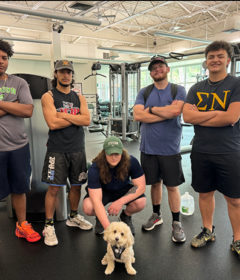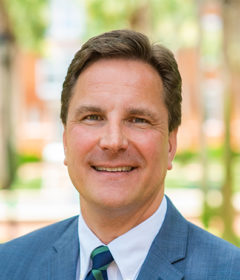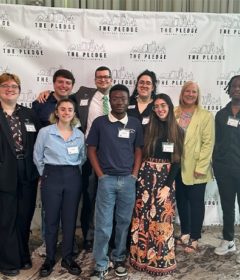Stetson Professor Cappas-Toro Named Finalist for National Award
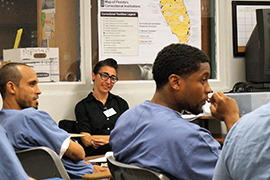
When Pamela Cappas-Toro was hired at Stetson University in 2013, she brought two ideas with her from grad school.
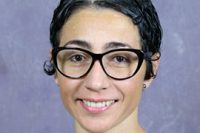
While earning her Ph.D. in Spanish from the University of Illinois at Urbana-Champaign, she taught “Spanish in the Communities,” in which undergraduate students assisted Latino immigrant families through various nonprofit organizations. She also worked for the Education Justice Project, teaching incarcerated men in a nearby prison.
As soon as she arrived at Stetson, she started working to start similar programs here. And for that community engagement, she was named one of three finalists this month for a national award.
The Lynton Award, sponsored by Brown University, recognizes a faculty member who, early in their career before receiving tenure, connects their teaching and research to community service and engagement. It is the only national faculty award for the scholarship of engagement. The winner will be announced in mid-August.

Cappas-Toro said she learned she was a finalist for the major national award on June 14 as she prepared for a trip to Puerto Rico, where she was born and raised. The news brought “a lot of emotions.”
“For me, this is more about the people in the project – not about me. I would never be in this position if not for my incarcerated students and my students at La Casa Cultural Latina,” said Cappas-Toro, assistant professor of World Languages and Cultures (Spanish) at Stetson. “It really reinforces what I believe in.”
For her, Stetson’s La Casa Cultural Latina and Community Education Project address social justice issues. Latinos who cannot speak English in this country are limited in job opportunities, in obtaining government services and being involved in their children’s schools, for example.
She also believes universities have “the moral obligation” to provide educational opportunities to incarcerated people, who often come from marginalized communities and attended inadequate schools, and may have been imprisoned since they were teenagers. Through the Community Education Project, she and other faculty members offer free classes, without college credit, to incarcerated men at Tomoka Correctional Institution in Daytona Beach.
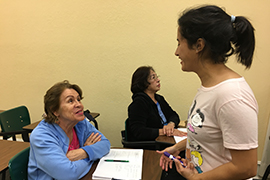
“Pamela’s teaching, research, and service are all brought together by their focus on education as a tool for empowering disadvantaged populations,” wrote Savannah-Jane Griffin, Stetson’s director of Community Engagement and Inclusive Excellence, in her nomination of Cappas-Toro for the award. “What she has been able to accomplish over the past four years has been incredible to see.”
Cappas-Toro said she sees her community engagement as a way to give back, especially because she came from an underprivileged background in Puerto Rico, where access to higher education was not a possibility for either of her parents.
Being selected as a finalist for the award is a recognition of “all the people who worked with this young girl, who was in track and field, which helped me get to college,” she said.
She credited her mentors at the University of Illinois, Professors Ann Abbott and Rebecca Ginsburg, for teaching her how to combine the traditional academic roles of teaching and research with community engagement.
The projects have been successful at Stetson, she said, because of the support that she has received from faculty and administrators, including Dean Karen Ryan, Ph.D., in the College of Arts and Sciences, and her partners in the prison education project – her husband, Stetson adjunct History Professor Andy Eisen, Ph.D.; Jelena Petrovic, Ph.D., Stetson assistant professor of Communication and Media Studies; and Melinda Hall, Ph.D., Stetson assistant professor of Philosophy. Last semester, Cappas-Toro and the Community Education Project received a $10,000 grant, the Nina B. Hollis Research Impact Award, from Stetson to begin collecting data on the incarcerated students’ academic gains in math and English.
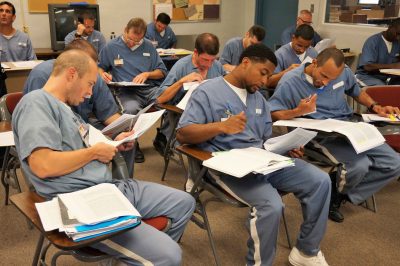
“It was truly one of the most powerful experiences I’ve ever had,” Dean Ryan said of attending one of the classes recently at Tomoka Correctional Institution. “This is very determinedly not vocational training. This is about intellectual development. … They talk about it transforming their lives.”

